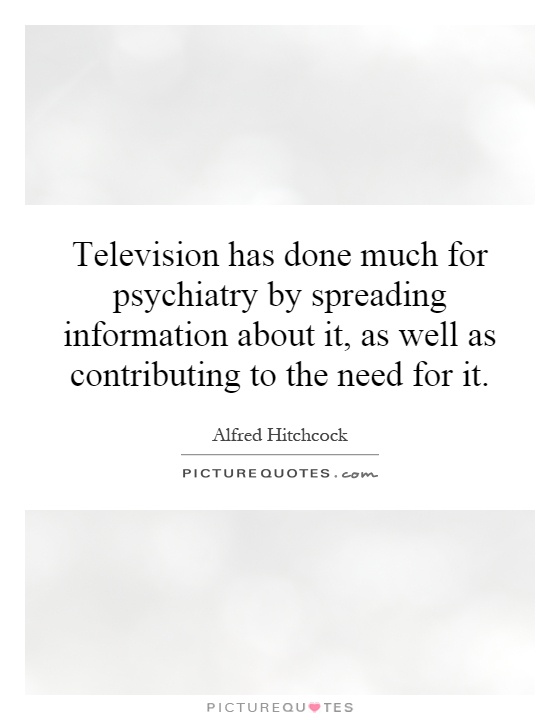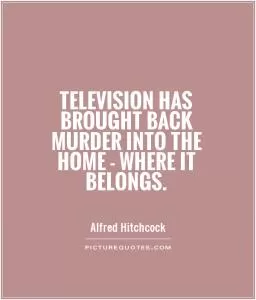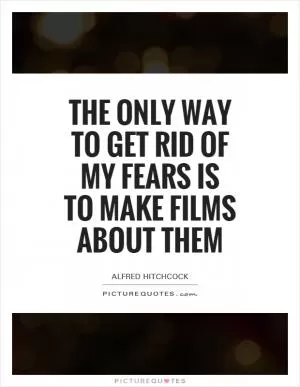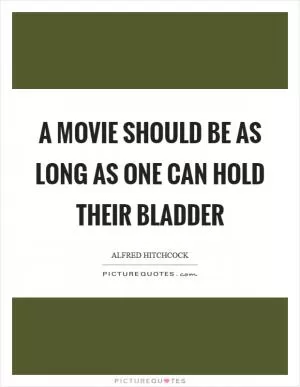Television has done much for psychiatry by spreading information about it, as well as contributing to the need for it

Television has done much for psychiatry by spreading information about it, as well as contributing to the need for it
Alfred Hitchcock, the master of suspense and psychological thrillers, was a pioneer in using television as a platform to explore the complexities of the human mind. Through his iconic television series, "Alfred Hitchcock Presents," he delved into the darker aspects of human nature, often delving into themes of paranoia, obsession, and mental illness. In doing so, Hitchcock not only entertained audiences but also sparked conversations about the importance of psychiatry and mental health.One of the ways in which television has benefited psychiatry through Hitchcock's work is by spreading information about mental health issues. Through his carefully crafted stories, Hitchcock was able to shine a light on the struggles faced by individuals dealing with mental illness. By portraying characters who grappled with anxiety, depression, and other psychological disorders, Hitchcock helped to destigmatize these conditions and raise awareness about the importance of seeking help.
Furthermore, Hitchcock's work contributed to the need for psychiatry by highlighting the complexities of the human mind. His characters often grappled with inner demons and unresolved traumas, showcasing the impact that psychological issues can have on a person's life. By exploring these themes in a compelling and thought-provoking manner, Hitchcock encouraged viewers to consider the importance of mental health and the role that psychiatry plays in addressing these issues.












 Friendship Quotes
Friendship Quotes Love Quotes
Love Quotes Life Quotes
Life Quotes Funny Quotes
Funny Quotes Motivational Quotes
Motivational Quotes Inspirational Quotes
Inspirational Quotes